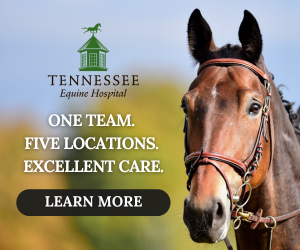In today’s rapidly evolving business landscape, workforce development has emerged as a vital component across all sectors. Within the agricultural and equine industries, this need is pronounced due to the unique challenges and opportunities these fields encounter.
Workforce development encompasses a range of activities, including training, upskilling, and reskilling, aimed at enhancing the skills and competencies of employees. For equine businesses, understanding the importance of workforce development is crucial for sustaining and advancing their operations.
A recent survey conducted by TalentLMS and Workable highlights a shift from recruitment to retention in the current hiring market. With the hiring environment remaining competitive, many employers seek incentives that will help them retain skilled workers. While perks such as four-day workweeks and remote work options often gain attention, career development and upskilling opportunities are increasingly recognized as vital employee benefits. This trend underscores the importance of workforce development as a strategic tool to foster employee satisfaction and loyalty.
The survey further reveals that the desire for personal growth cuts across all generations in the workforce. Despite this, only 54% of Gen Z employees report satisfaction with their career development programs. This suggests that there is significant room for improvement in how employers address the needs of this younger generation. Notably, 20% of Gen Z respondents feel that their managers do not understand their skill development needs. This communication gap presents a critical challenge for equine and agricultural businesses aiming to nurture the next generation of industry professionals. Closing this gap is essential to ensure that young talent remains engaged and committed to the sector.
Overall, neglecting career development can lead to increased turnover and diminished employee engagement, posing significant risks to the long-term health of workforce development pipelines. In the equine and agricultural sectors, this issue is particularly pressing. These industries rely heavily on skilled labor to manage complex tasks such as animal care, facility and farm management, and business operations. Therefore, implementing robust workforce development strategies is paramount to not only maintaining current operations but also future-proofing the industry against ongoing and emerging challenges.
For equine and agricultural businesses, investing in workforce development is not merely an option; it is a necessity. By prioritizing training and upskilling, these industries can ensure a steady flow of capable professionals who are equipped to meet the demands of today’s dynamic market. Equally important is fostering an environment that values and understands the developmental aspirations of all employees, particularly those belonging to younger generations. Ultimately, a commitment to workforce development will help equine and agricultural enterprises thrive in the face of change.
The Importance of Investing in Employee Growth and Development

The industry has long been romanticized for its picturesque settings and connection to nature, which many see has a major employment benefit. Unlike other sectors where crises may arise from technological shifts or economic downturns, the equine industry’s challenges are deeply rooted in cultural and structural issues that require immediate attention and innovative solutions.
The equine industry is not unlike other industries in terms of facing a workforce crisis, but it does have unique challenges. Primarily, there’s a glaring gap in exposure, education, and licensing needed to sustain a thriving workforce. Laurie Mays, Agriculture and Equine Talent Pipeline Project Manager for the Kentucky Chamber of Commerce Foundation stated that “research indicates that if children aren’t exposed to potential career paths by the age of ten (4th grade), then they may never consider the career as a viable option.” This is particularly true for the equine and agricultural sectors, which have become increasingly foreign to urban and suburban community members due to lifestyle changes and urbanization.

For those who do enter the equine industry, career progression often stalls at entry-level positions like grooms or caretakers. The demanding work culture, characterized by 12-hour workdays for six days a week, is unsustainable. And just because it has always been that way, does not mean it should stay that way.
This kind of unsustainable culture not only leads to high burnout rates and turnover, but drives employees out of the industry entirely, Laurie explains. Many find more traditional careers more rewarding, both financially and personally, allowing them to enjoy equine activities and horse ownership leisurely rather than professionally.
Burnout and retention issues are exacerbated in businesses that fail to invest in their employees’ development. It is crucial for equine business owners to prioritize the growth and development of their staff. While turnover every 2-3 years for entry-level roles might seem inevitable, nurturing employees can foster a pipeline of skilled professionals within the equine industry. This approach not only benefits individual businesses but strengthens the industry as a whole. When employees feel like they matter, and they are a part of a team, they are happier within their roles.

Laurie explains that employers must pivot from solely focusing on expanding their client base to building robust, comprehensive business models. Branding themselves as organizations that nurture workforce talent will not only attract top talent but also enhance overall business performance.
High-performing employees are significantly more productive, as evidenced by Valesco Industries’ findings, where their employees are found to be 400 to 800% more productive than average employees in complex roles.
Valesco Industries emphasizes the importance of forming collaborative partnerships with management teams to drive value and minimize risk. By adopting this philosophy, equine businesses can achieve greater efficiency and success, even as small businesses. Businesses that invest in their employees’ career growth can expect increased motivation, productivity, retention, and profitability, as highlighted by Forbes.

The equine industry must evolve beyond traditional perceptions of being just an “equine business.” To tackle the workforce crisis, it needs to adopt modern business strategies focused on employee development programs and sustainable work cultures. Laurie rightly points out that continuing to adhere to unsustainable work expectations will only exacerbate the crisis. Instead, equine businesses should view themselves as dynamic entities capable of fostering talent and driving innovation in new and untapped populations.
Workforce Solutions and Success Stories
Laurie and her team at the Kentucky Chamber of Commerce use the success of Blackburn Correctional Complex as a success story when it comes to equine workforce development and placing qualified and knowledgeable individuals into needed positions in the equine industry throughout the Commonwealth of Kentucky.

Blackburn Correctional Complex (BCC) manages one of seven Second Chances Farms for the Thoroughbred Retirement Foundation (TRF) and the only one in Kentucky. The Second Chances Farm at Blackburn is currently home to 57 Thoroughbreds that are retired or have an otherwise limited athletic future.
According to the Commonwealth of Kentucky Department of Corrections, found on www.ky.gov, the Thoroughbred Retirement Foundation (TRF) started its mission of connecting horses and people at the Wallkill Correctional Facility in New York, with its headquarters located in Saratoga Springs, NY. Blackburn’s Second Chance Farm, which opened in 1999, is the third farm established by TRF and is currently its largest.
Inmates gain hands-on experience in horse care and farm management through a six-month program covering essential topics like veterinary care, biology, grooming, dental care, and training. This program is led by the Farm Manager and requires participants to pass a 300-question exam to graduate. Successful graduates can earn 90 days off their sentence. To qualify, inmates must possess a GED and demonstrate a history of good conduct, which they must maintain to stay in the program. This initiative has proven effective in preparing inmates for employment after their release.
Additionally, inmates have reported that their involvement with TRF is therapeutic and positively impacts their behavior. Laurie states that equine businesses can diversify recruitment sources and pinpoint niche populations for education and recruitment. She discussed several population groups in which future equine employees can be trained and recruited. Those include:
Prison Reform Programs: Similar to Blackburn’s initiative, partnering with prison programs that provide training in equine care offers businesses access to a pool of qualified candidates eager to reintegrate into society. For instance, farm managers who visited Blackburn’s program recognized inmates as skilled individuals ready for employment, rather than merely viewing them through the lens of their criminal histories.
Substance Abuse Centers and Foster Care Systems: These populations often consist of individuals seeking stability and purpose, making them ideal candidates for entry-level positions. An increasing number of rehabilitation centers across the U.S. are incorporating Equine-Assisted Therapy programs for individuals working through substance abuse and trauma. Participants engage in activities such as horse care, ground work, feeding, and cleaning, while also forming meaningful bonds with horses during therapy sessions. Lakeside Behavioral Health, located in West Tennessee, for example, integrated Equine Therapy for substance abuse patients in 2017. Numerous Equine-Assisted Therapy nonprofits and organizations also support youth and adults facing PTSD, anxiety, depression, grief, and other mental and behavioral challenges.
Youth Organizations: Introducing equine careers to students through Future Farmers of America (FFA), 4-H groups, and even elementary and middle schools can ignite interest and cultivate a future workforce. Collaborating with local public and private schools helps expose youth to equine careers, while offering internships to high school and college students can significantly boost interest in the equine industry.
Laurie highlights that equine business owners in Kentucky have united to address the workforce crisis by partnering with Blackburn Correctional and its equine program. Many inmates found job opportunities awaiting them even before completing their sentences.
She also suggests that equine business owners should identify where they feel most comfortable recruiting staff. If they prefer working with youth and training teenage or college-aged students, they must fully commit to that educational process. Alternatively, if their focus is on individuals who have completed educational and hands-on programs akin to Blackburn Correctional, hiring individuals with previous criminal records could yield dedicated, long-term employees for their farms.
There’s a noticeable disconnect between education and the demands of the equine workforce. By reaching out to leaders in these populations and expressing commitment to hiring, businesses can bridge this gap and attract qualified candidates. Laurie recommends that farm and equine business owners reach out to local workforce development initiatives through local or state chambers of commerce, connect with county and state parole and probation offices to see if there is a correctional facility in their region that offers equine education or therapy programs.
Business owners can connect with their community’s foster care office and let them know about job opportunities and career growth opportunities at their farms and facilities. Some transitional foster systems who serve individuals ages 18- 25 will cover internship wages as youth transition into supporting themselves through jobs and career training and education.
Laurie emphasizes a critical point: “Some equine business owners are exceptional horsemen but struggle as business managers.” It’s essential for equine managers and business owners to pursue ongoing education to enhance their business acumen. Joining chambers of commerce and business associations, and treating their equine operations as legitimate businesses, are vital steps toward improved management of equine staff and workforce.
Collaborating for Industry Growth
Collaboration among equine businesses is essential for driving industry-wide improvements. By sharing resources and expertise, businesses can collectively tackle workforce challenges. However, some equine business owners have distanced themselves from similar farms and training programs out of fear of losing clients and employees. This isolation can be detrimental, leading to burnout and increased pressure on business owners and farm managers.
Laurie highlights the significance of fostering openness and innovation within the equine community to address the workforce crisis. By investing in education, providing unique benefits, and reaching out to unconventional talent pools, the equine industry can not only navigate its current challenges but also thrive in the long term. Such an approach positions businesses as desirable employers and strengthens the equine community as a whole.











